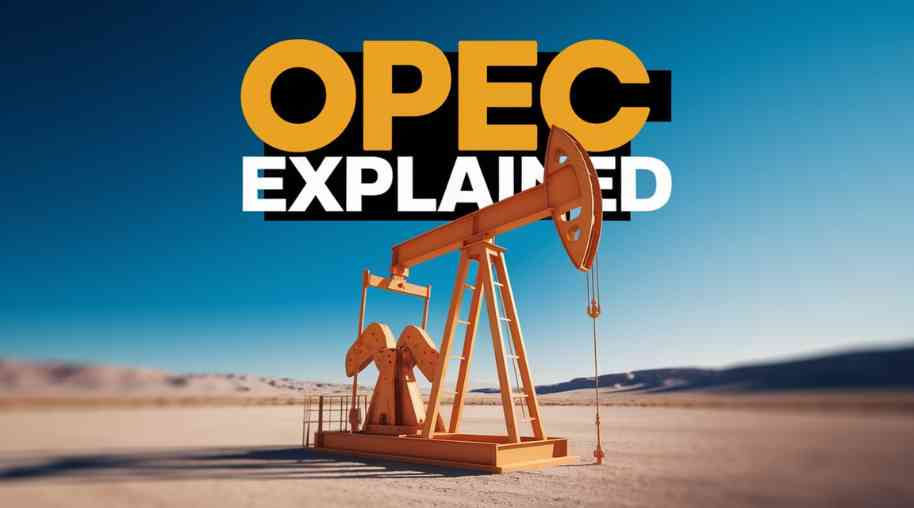OPEC Full Form-Organisation of Petroleum Exporting Countries
by Shashi Gaherwar
0 1756
Organization of the Petroleum Exporting Countries (OPEC): Role, Impact, and Future Prospects
The Organization of the Petroleum Exporting Countries (OPEC) is a global intergovernmental body that coordinates oil supply to stabilize markets and regulate crude oil prices. Founded in 1960, OPEC influences global energy policies, controlling 80% of proven oil reserves and 40% of production.

This article explores OPEC’s history, functions, impact, challenges, and future in the global energy sector.
History and Formation of OPEC
Founded on September 14, 1960, in Baghdad, Iraq, by Iran, Iraq, Kuwait, Saudi Arabia, and Venezuela, OPEC countered Western oil companies’ control over pricing. Today, its 13 members—Algeria, Angola, Congo, Equatorial Guinea, Gabon, Iran, Iraq, Kuwait, Libya, Nigeria, Saudi Arabia, UAE, and Venezuela—headquartered in Vienna, Austria, unify petroleum policies.
Functions and Objectives of OPEC
OPEC aims to unify petroleum policies with key functions:
- Regulating Oil Supply: Adjusts production to balance supply and demand.
- Stabilizing Oil Markets: Prevents volatility for predictable pricing.
- Influencing Global Oil Prices: Production decisions impact price fluctuations.
- Ensuring Fair Revenue: Protects economic interests through fair oil pricing.
- Collaboration with Non-OPEC: Partners with OPEC+ countries like Russia for market stability.
Impact of OPEC on the Global Economy
OPEC’s policies have wide-reaching effects:
- Oil Price Control: Influences fuel prices, affecting inflation globally.
- Energy Security: Ensures stable oil supply, preventing shortages.
- Economic Influence: Impacts trade strategies of oil-importing nations like India and China.
- Geopolitical Tensions: Shapes international relations through oil trade.
Challenges Faced by OPEC
OPEC faces significant challenges in the modern energy landscape:
- Rising Competition: US shale oil and non-OPEC producers like Russia reduce dominance.
- Renewable Energy Shift: Solar, wind, and EVs threaten oil demand.
- Internal Conflicts: Crises in Venezuela, Libya, and Iran disrupt production.
- Economic Uncertainty: Downturns like COVID-19 cause price volatility.
OPEC’s Future Prospects
OPEC is adapting to remain relevant with strategies like:
- Strengthening OPEC+: Collaborating with non-members like Russia for stability.
- Alternative Energy Investments: Exploring hydrogen and carbon capture technologies.
- Market Adaptation: Adjusting quotas to stay competitive in energy markets.
- Sustainable Oil Production: Developing carbon-neutral extraction methods.
Conclusion
The Organization of the Petroleum Exporting Countries (OPEC) has shaped global energy markets for over six decades by regulating oil supply and stabilizing prices. Facing challenges like renewable energy and competition, OPEC must adapt through sustainable practices and partnerships to maintain its influence in the evolving energy sector.
Further Learning Resources
If you’re passionate about building a successful blogging website, check out this helpful guide at Coding Tag – How to Start a Successful Blog. It offers practical steps and expert tips to kickstart your blogging journey!
For dedicated UPSC exam preparation, we highly recommend visiting www.iasmania.com. It offers well-structured resources, current affairs, and subject-wise notes tailored specifically for aspirants. Start your journey today!

Share:








Comments
Waiting for your comments